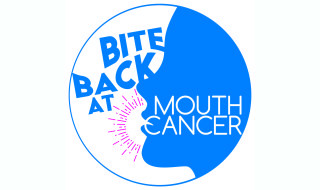The Mouth Cancer Foundation, one of the country’s leading head and neck cancer charities, looks at the possible reasons for the disease’s escalating statistics
There is no getting away from it, head and neck cancers are on the rise and they are still being detected late.
Oral cancer was once a disease that affected the elderly, mostly male, smokers and drinkers. In the 1990s, the ratio of male to female victims was 5:1. Of all the diagnosed oral cancer cases, 87% affect those over the age of 40.
However, the tables are turning and, today, the disease is killing more women; the ratio is now 2:1 and affecting younger people.
Around 60,000 people in the UK will be diagnosed with mouth cancer in the next decade. According to Cancer Research UK, more than 7,700 people in the UK were diagnosed with mouth cancer in 2011.
Despite treatment, 50% of these patients presently die from oral cancer within five years of being diagnosed. However, with early detection, referral and intervention, survival rates can increase to closer to 90%.
Escalating statistics
Of course, not getting mouth cancer is the ideal, and risky lifestyle habits should be avoided. Tobacco use is still considered the main cause of mouth cancer.
According to the World Health Organization, up to half of current smokers will die of a tobacco-related illness – including mouth cancer.
In Asian communities, the traditional use of chewing betel quid (often with tobacco) is an additional risk factor.
Drinking alcohol to excess can increase the risk of mouth cancer by four times. Those who smoke and drink are up to 30 times more likely to develop mouth cancer.
These habits are often associated with a poor diet, which is linked to a third of all cancer cases.
An increasing number of cases are now caused by the human papilloma virus (HPV), which is transmitted through oral sex.
It is thought that HPV could overtake tobacco and alcohol as the main risk factor within the coming decade.
Signs and symptoms
In the very early stages, mouth cancers are hard to detect, as they are almost invisible and often painless.
It is important that you and your patients are aware of the general signs and symptoms of mouth cancer, as follows:
- Sores, ulcers or white or red patches anywhere in the mouth that do not heal within three weeks
- Lumps or swellings anywhere in the mouth, jaw or neck that persist for more than three weeks
- Difficulty in swallowing, chewing or moving the jaw or tongue
- Numbness of the tongue or other areas of the mouth
- A feeling that something is caught in the throat
- Chronic sore throat or hoarseness that persists for more than six weeks
- An unexplained loosening of teeth with no dental cause.
Dentists and dental care professionals play a key role in the early detection of oral cancer. They have a professional and ethical duty of care to screen every patient during a dental check-up and provide advice on a healthy lifestyle.
Bite back
However, the general public should also be checking themselves to help fight the battle against mouth cancers.
Launched in September 2015 by Dr Dawn Harper, Channel 4’s Embarrassing Bodies GP, the Mouth Cancer Foundation’s latest campaign, Bite Back at Mouth Cancer, encourages members of the general public to check their mouths for cancer once a month.
By providing a simple head and neck cancer check, which can be carried out by anyone at home, at any time, the campaign aims to show members of the public what to look for.
It also explains how to seek help if they find something out of the ordinary. This will allow head and neck cancers to be caught earlier, which will save lives.
For further information about Bite Back at Mouth Cancer, visit the website.



